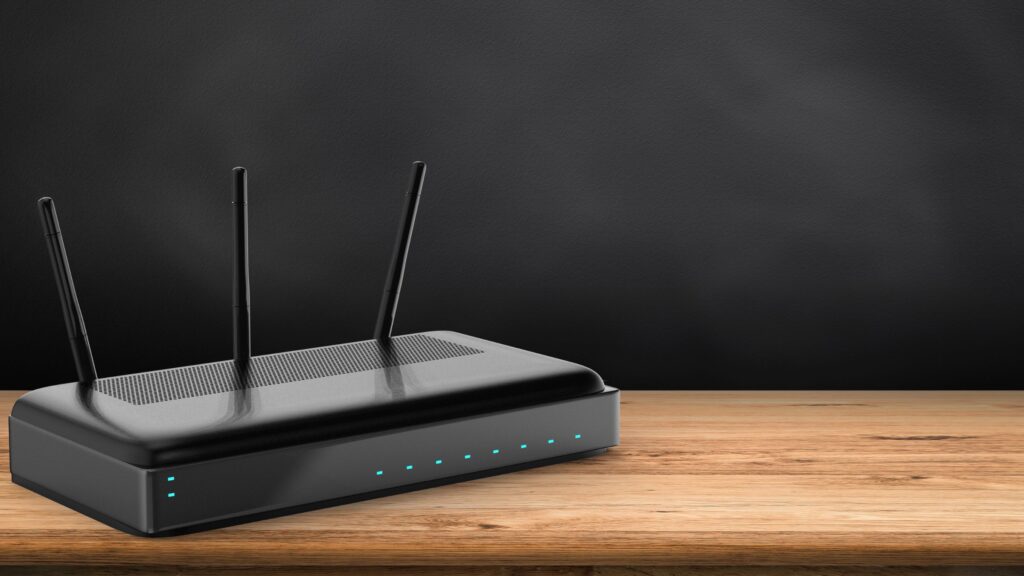How does a 4g Router Work ? Quick Guide

Introduction
The world of technology is constantly evolving, and with that, our need for connectivity has grown exponentially. We rely heavily on the internet for work, education, entertainment, and communication. In order to satisfy our thirst for connectivity, a wide range of devices have been introduced, including 4G routers. But how exactly do these routers work, and what benefits do they offer?
In this article, we will delve in how does a 4G router work to understand its functionality and why it has become a popular choice for many.
What is a 4g Router Work ?
To begin, let’s grasp the concept of what a 4G router is. A 4G router is essentially a device that allows multiple internet-enabled devices to connect to the internet using a 4G mobile broadband connection. It acts as a middleman between the devices and the internet service provider, delivering a wireless internet signal to all connected devices. Unlike traditional home routers that rely on fixed broadband connections, 4G routers utilize mobile network data services. This makes them highly versatile and ideal for situations where wired connections are unavailable or impractical.
A 4G router, also known as a mobile broadband router or wireless router, works by connecting to a 4G mobile network to provide internet access and create a local wireless network. It uses a SIM card to establish a connection to the mobile network and then distributes the internet connection to multiple devices through Wi-Fi or Ethernet ports.
The 4G router converts the 4G cellular signal into a Wi-Fi signal that can be used by devices such as smartphones, tablets, laptops, game consoles, and smart TVs. It allows multiple devices to connect to the internet simultaneously and provides a stable and reliable internet connection in areas where traditional wired broadband may not be available or is unreliable.
Some advanced 4G routers may also have additional features such as VPN (Virtual Private Network) support, parental controls, firewalls, and advanced security options to enhance the network’s performance, security, and privacy.
How does a 4g Router Work ?
The functionality of a 4G router can be broken down into several key components. Let’s explore these components in more detail:
- SIM Card: Similar to a mobile phone, 4G routers require a SIM card to establish a connection with the mobile network. The SIM card contains all the necessary information to authenticate and connect to the network. It acts as the gateway between the router and the service provider, ensuring a seamless connection.
- Mobile Network Connectivity: Once the SIM card is inserted into the router, it searches for available mobile network signals. The router then establishes a connection with the strongest available signal. This connection relies on the same infrastructure used by mobile phones to connect to the internet.

- Data Transmission: Once the router is connected to the mobile network, it can transmit and receive data using various wireless technologies such as Wi-Fi or Ethernet. The data is securely encrypted, ensuring privacy and protection from unauthorized access.
- Multiple Device Connectivity: One of the main advantages of a 4G router is its ability to support multiple devices simultaneously. This means that laptops, smartphones, tablets, smart TVs, or any other Wi-Fi enabled devices can connect to the router and access the internet without any wired connections.
- Speed and Bandwidth: 4G routers offer high-speed internet access, delivering fast and reliable connectivity. The bandwidth available depends on the mobile network provider and the data plan chosen. The data plan often has a predetermined limit, and exceeding this limit may result in reduced speeds or additional charges.
Range of 4g Router
The range of a 4G router can vary depending on several factors such as the model, antenna design, environmental conditions, and interference. However, most 4G routers typically offer a range of up to 100-300 feet indoors and 500-1000 feet outdoors. It’s important to note that these ranges are approximate and can be influenced by obstacles like walls, buildings, and other wireless devices.
Benefits of 4g Router
Now that we have an understanding of how a 4G router works, let’s discuss some benefits and applications:
- Mobility: 4G routers are highly portable, allowing users to access the internet from virtually anywhere with mobile network coverage. This makes them ideal for individuals on the go, remote workers, or travelers.
- Backup Internet Connection: In cases where fixed broadband connections fail or are unavailable, a 4G router can serve as a reliable backup connection. This ensures uninterrupted connectivity, especially for businesses that heavily rely on the internet for their operations.
- Rural Connectivity: In areas where laying down fixed broadband infrastructure is challenging or costly, 4G routers provide a viable solution. They allow individuals living in rural areas to access high-speed internet without the need for extensive infrastructure investments.
- Temporary Deployments: 4G routers can be easily deployed for temporary setups such as exhibitions, events, or construction sites. They eliminate the need for complex wiring or reliance on nearby Wi-Fi networks, providing a seamless and independent internet connection.
Conclusion
In conclusion, 4G routers have revolutionized the way we connect to the internet. With their reliance on mobile network data services, these routers offer a versatile solution for accessing high-speed internet connectivity. Whether you are a remote worker, a business in need of backup connectivity, or someone living in a rural area, a 4G router can fulfill your internet needs with ease and efficiency. Embracing this technology allows us to stay connected and enjoy the benefits of a vast digital world.

With a degree in Electrical Engineering and years of hands-on experience in the tech industry, passionate to provide readers with insightful reviews. From smartphones and laptops to smart home devices and emerging technologies, he navigates the ever-evolving tech landscape, offering in-depth analyses and honest opinions.









